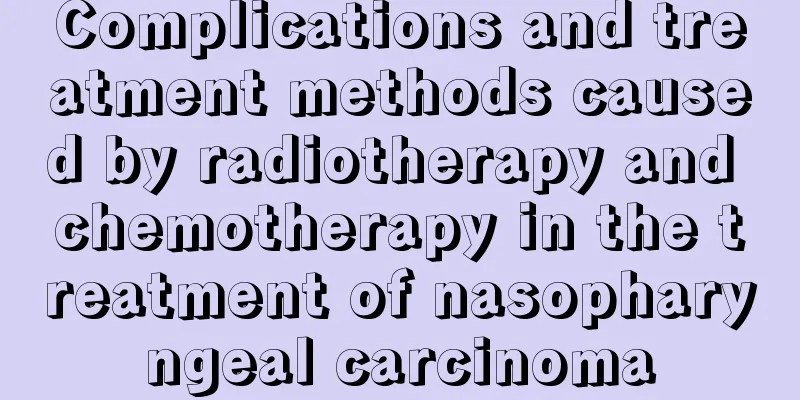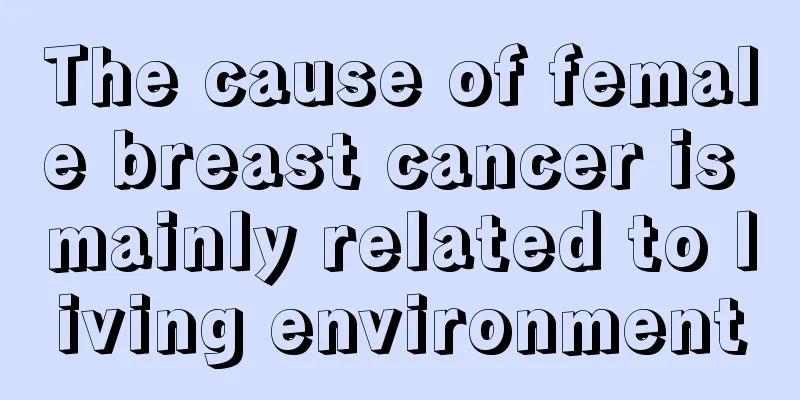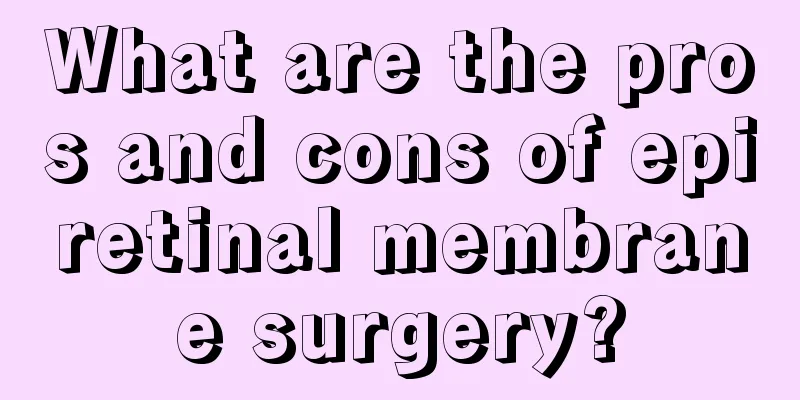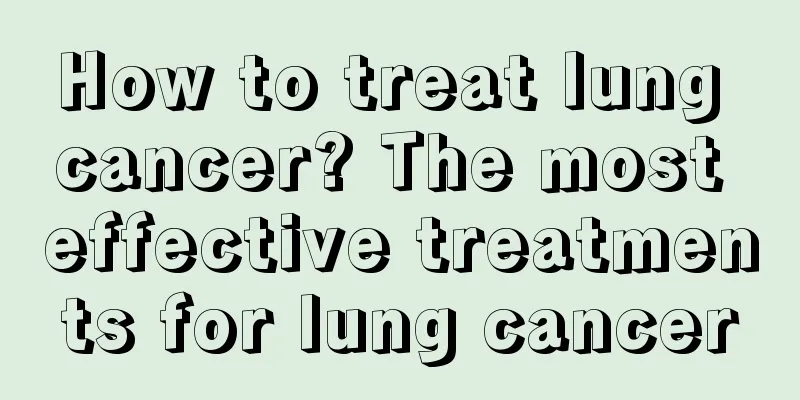Complications and treatment methods caused by radiotherapy and chemotherapy in the treatment of nasopharyngeal carcinoma

|
The treatment of nasopharyngeal carcinoma often adopts a combination of radiotherapy and chemotherapy, which of course will cause a series of complications. For some reactions, reasonable methods should be taken in time to deal with them. (1) Nose rupture and bleeding: The cause is that after radiotherapy, the tumor regresses rapidly, the tumor tissue necrotizes and falls off, and the surrounding tissue cannot be effectively repaired, resulting in blood vessel rupture. In addition, after radiotherapy, the nasopharyngeal mucosa is dry, and the local blood vessels are hardened and brittle. When the tumor necrotizes and forms ulcers, combined with infection, the ulcers deepen, eventually causing blood vessel rupture and massive bleeding. (2) Radiation encephalopathy: It is a late complication after radiotherapy for nasopharyngeal carcinoma, manifested by headache, polyphasia, olfactory hallucination, limb weakness, and unsteady gait. It is caused by temporal lobe necrosis after radiotherapy and is related to factors such as the total radiotherapy dose, fractionated dose, and the range of irradiated brain tissue. (3) Sinusitis: Before radiotherapy for nasopharyngeal carcinoma, the tumor blocks the posterior nostril and even the nasal cavity, so the incidence of sinusitis is high. (4) Radiation stomatitis: 1 to 2 weeks after radiotherapy, the oral mucosa will develop redness, swelling, pain, and ulceration. As the radiation dose continues to accumulate, the oral mucosa may develop the following: thin white films of varying sizes, mucosal erosion, and increased pain. Nebulizer inhalation can be performed 2 to 3 times to reduce inflammation, swelling, and infection. If the pain is unbearable, you can rinse your mouth with a solution of 10 to 15 ml of 2% lidocaine hydrochloride added to 250 ml of normal saline before eating. (5) Parotid gland injury: The parotid gland may have an acute reaction within a few hours after the first fraction of radiotherapy, which is manifested as temporary tenderness and occasional obvious swelling. The long-term consequences are unclear and there is no need to worry. Mild analgesics (such as acetaminophen) can be taken to relieve the pain. |
<<: The best treatment for nasopharyngeal carcinoma
>>: Pancreatic cancer patients can choose CyberKnife treatment according to their condition
Recommend
How to prevent pancreatic cancer
On weekdays, the chance of developing bile duct c...
How to detect anemia through blood test
Anemia has a huge impact on people's bodies. ...
How to treat dandruff
Hair is the second manifestation of a person'...
How long can a patient with liver cancer and hepatic coma live? It is divided into these four periods
Hepatic coma is also one of the most important co...
Can lymphoma be cured? How long will the treatment take?
Can lymphoma be cured? How long will the treatmen...
Is acupuncture effective in treating vertigo?
People must have experienced dizziness in their d...
Introduction to the main characteristics of bladder cancer symptoms
The chance of bladder cancer symptoms appearing i...
How to distinguish external hemorrhoids from internal hemorrhoids
External hemorrhoids and internal hemorrhoids are...
What is the reason for the protruding bones on the feet
If the bones on your feet appear to be protruding...
Can people with stomach problems eat kelp?
The human body is often prone to disease problems...
What is the reason for limb weakness and joint pain
The phenomenon of weakness in the limbs and joint...
What is hydrophobia? What is the fear of water?
Hydrophobia is actually rabies, which is a diseas...
How to care before and after bladder cancer surgery
The treatment of bladder cancer is a comprehensiv...
How to correct protruding front teeth
The professional name for protruding front teeth ...
How should brain cancer be treated
In life, people need to know some common sense ab...









